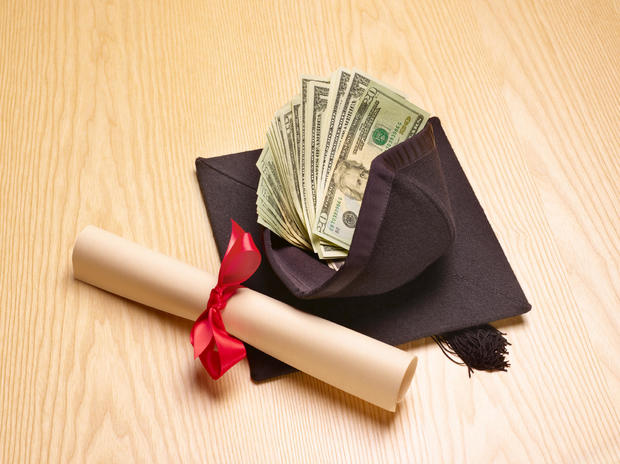What is a private student loan?
College is a wonderful experience that can open up possibilities for your future, but paying for it can be tricky. The cost of a higher education is out of reach for many students without financial assistance. Fortunately, there are plenty of options when it comes to this assistance ranging from scholarships and grants to work-study programs and student loans.
The first places you should turn if you need help paying for college are scholarships, grants and work-study, which provide you with funds you'll never need to pay back. Once you've exhausted those options, student loans can help cover any remaining costs.
Student loans come in two forms: federal and private. While federal student loans are the most common, private student loans are worth considering, too. By knowing how they work and the advantages and disadvantages they offer, you can make an informed decision about whether they fit into your college plan.
Start exploring your private student loan options online here now.
What is a private student loan?
A private student loan is a type of education loan offered by private companies such as banks, credit unions and other financial institutions. Unlike federal student loans, private student loans are not backed by the government.
Private student loans can cover tuition, room and board, textbooks and other school-related expenses. They're best used to pay for any expenses left over after you've maxed out all other financial aid options.
How do private student loans work?
Applying for a private student loan is similar to applying for a personal loan. You must fill out an application, and your eligibility depends on your credit score and other factors, such as income and employment.
The stronger your financial position, the better the interest rate you'll likely receive. If your credit score is too low, you may need to get a cosigner to qualify. This is someone with a good credit score who agrees to repay your loan if you are unable to.
Pros of private student loans
Benefits of private student loans include:
- Higher borrowing limits: Private loans student loans allow you to borrow more than federal loans do. Depending on the lender and your creditworthiness, you may be able to get up to $75,000 or $100,000, compared to the $5,000 to $20,000 typically provided by federal loans.
- Ready access to funds: You must submit a Free Application for Federal Student Aid (FAFSA) between Oct. 1 and June 30 to get a federal student loan for the following school year. By contrast, you can apply for many private student loans at any time and generally will be approved within minutes. This can be particularly helpful if you encounter a sudden, unexpected expense.
- Variable interest rates: Federal student loan rates are fixed when you're approved for the loan. Private student loan rates can be either fixed or variable. If you choose variable and overall interest rates go down, your payments will go down, too.
- Potential for lower rates: Federal students are need-based and depend on your cost of attendance. But since private loans are based on your credit, a high score could net you a lower interest rate. So could having a cosigner.
Find out how much you could borrow with a private student loan here.
Cons of private student loans
Before applying for a private student loan, you should also consider the downsides:
- Credit-based: If your credit score is low or you don't have an established credit history, it can be hard to qualify for a private student loan — and if you do, the rate and terms may not be great. You can add a cosigner, but that's a significant ask that can put a strain on your relationship with that person.
- Fewer repayment assistance options: Federal loans offer a plethora of deferment, forbearance and forgiveness options, in addition to income-based repayment plans, to help borrowers who run into financial difficulties. Some private student loans offer repayment plans, but not all, and none offer forgiveness.
- Variable interest rates: A variable interest rate could help you if overall interest rates decrease, but if they increase, so will your private student loan payments. So, you should be confident you can comfortably afford payment fluctuations to avoid defaulting or putting a strain on your finances.
The bottom line
Private student loans can be a valuable tool for financing your college education. But it's essential to weigh their benefits and drawbacks and use them wisely to avoid putting yourself in a tough financial position down the road.
To get the best interest rate on a private student loan, take the time to compare multiple lenders and never borrow more than you need. With careful planning and a little research, you can find the best way to finance your education and set yourself up for a successful financial future.




